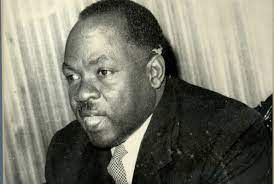
Uganda’s independence heroes; Ben Kiwanuka
Benedicto Kiwanuka’s life story is a testament to Uganda’s complex journey toward independence and the turbulent years that followed. Born in May 1922 in Kisabwa within the Buganda kingdom, Kiwanuka was a son of a modest yet wealthy Roman Catholic chief—a background that would shape his lifelong engagement with Uganda’s political and religious communities.
His early education in mission schools laid the foundation for a career intertwined with Uganda’s Catholic groups. After serving in the African Pioneer Corps during World War II, Kiwanuka’s path took him to Britain where he studied law and was called to the bar at Gray’s Inn in 1956. Returning home, he briefly practiced law before entering the political arena at a pivotal moment for Uganda’s future.
Kiwanuka’s rise coincided with Uganda’s quest for independence, a period marked by competing interests especially within the powerful kingdom of Buganda. As leader of the Democratic Party, he championed the rights of Roman Catholics and sought to navigate the delicate balance between regional autonomy and national unity. His political journey culminated in 1961 when he became Uganda’s first chief minister and shortly thereafter, the first prime minister.
Yet, Kiwanuka’s tenure was fleeting. The political tides shifted with the 1962 elections and Milton Obote’s rise to power marked the beginning of a tumultuous era. Kiwanuka remained a key opposition figure advocating for Uganda’s unity amid escalating instability. His focus expanded to address the needs of Uganda’s Muslim population reflecting his broader commitment to inclusivity.
Tragically, Kiwanuka’s story ended in violence and darkness. In 1972, during Idi Amin’s brutal dictatorship, he was arrested and murdered—likely seen as a threat to Amin’s grip on power. His death symbolizes the chaos and repression that plagued Uganda during those years.
Kiwanuka’s legacy is a reminder of the fragility of leadership in times of upheaval and the enduring importance of resilience and dedication to national unity. As Uganda continues to forge its path forward, reflecting on figures like Kiwanuka helps us understand the costs of political struggle and the enduring hope for a better future.
